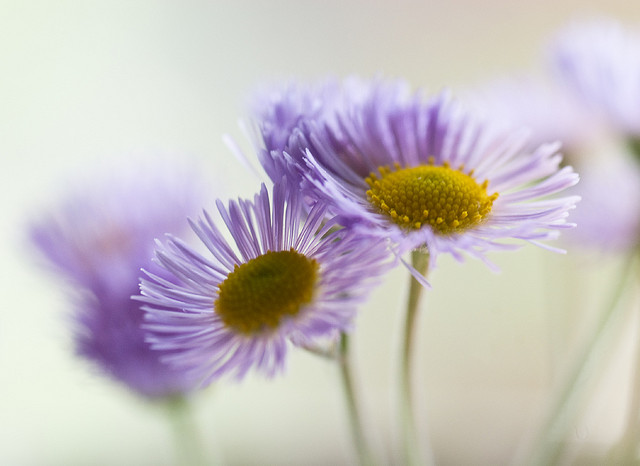Tonight, my flowerpots are so dry the water I pour in forces bubbles out of the soil. Unless I’ve watered it, every plant looks tired of trying to grow. Even the ones I have watered consistently all summer weep in the evening heat.
In normal years, I often wonder at the power of flowers and vegetables to produce so much without my intervention. My part in the process is the clearing of a small plot of land, the sowing of seeds, maybe a sprinkle or two of water, and out of that minimal start-up effort sprouts all of this green, all of these blossoms—and then how proud I feel when I pluck a bushel of peas or zucchini, as if I had anything at all to do with their productivity.
But this year, it is taking a lot of effort to sustain any kind of growth. If I don’t haul my hose around the house to spray gallon upon gallon of water on the garden and flowers, it only takes a day or two before they begin to show signs of fatigue. I picked the wrong year to plant new shrubs in the front beds—the rhododendron and azaleas seem to drop new leaves every day I neglect to hydrate them. I drag the hose all over the yard, get lost in thought as I soak the soil, careful not to wash the dirt away.
In this way, gardening is poetry. Sometimes it doesn’t seem to take much to reap a harvest, a little weeding after an idea is planted, a little pruning off the ends to fill in the center. Other times, it is kneeling in the dirt with sweat slick down your back working at a stubborn root or rock wedged in the soil, just to plant the seed. And then constant attention—water, thin the sprouts, weed, fertilize, weed, water, fertilize. Eventually, all that’s left to do is hope it was enough.
When in drought, it helps to have a friend who can come in with a watering can, maybe pull a few weeds with you or simply point out the blossoming fruit. I have one such friend who reads every poem I write. He is in his seventies and doesn’t use a computer. I email poems to him and his wife prints them off. Sometimes he calls and we read through it together, clipping off the suckers and trimming back what’s overgrown, or identifying the work that needs more fertilizer (or where I need to cut the crap…).
Most of the time, he writes back on the printer paper, notes his suggestions and shares his thoughts on the potential for this year’s crop. I am a grateful shrub with a tendency to lose some leaves when the weather gets too hot. The landscape prospers in the hands of a master gardener.
Angry
“He cuts off every branch in me
that bears no fruit…” – John 15:2
The angry gardener sees
overgrown, untended beds
and seethes. He pulls
the waist-high weeds,
heavy in seed, and heaves
them to the compost heap.
And then the shrubs—
how they shudder
in his shadow, hand saw
pushed and pulled until
limbs quiver, surrender.
Pruners snip, his grip
is sweaty, tight, a frenzy
to the suckers, rose hips,
broken stems, spotted leaves.
The clipping never ends;
he is severe—takes away
more than one-third.
And then mulch,
fertilizer, buckets of water.
The landscape, sighs,
breathes with the gardener
who stands back,
fists on hips.
Photograph: Asters by Kelly Sauer. Sourced via Flickr. Post by Sarah Wells, author of Pruning Burning Bushes: Poems.
—–
Buy a year of Every Day Poems, just $5.99— Read a poem a day, become a better poet. In July we’re exploring the theme The Cento.
- The Grateful Shrub - July 31, 2012


Danelle says
I’ve been “kneeling in the dirt” lately and I know, too, how it feels to “produce so much without intervention”.
The cutting of the branches. . so hard. . yet, exactly, precisely what we need.
You are right, “unless we water it, every plant looks too tired to grow.”
May I rest in Him and His perfect timing in all. Fertilizer, bucket of water. . . .
Really beautiful post. *Thank you*
Megan Willome says
We foolishly decided to plant grass last spring, when Texas was already into the worst drought in 100 years. With careful attention, it lived. Some bare spots remain, but with a little more rain and some extra care, those spots are gradually filling in.
L. L. Barkat says
I picked the wrong year, you said.
Yet sometimes we need to plant, don’t we? Right year, wrong year, doesn’t matter. 🙂
And so we maybe learn to be our own kind of tender gardener, if we want life to survive.
Love this asters photo. Oh my goodness! 🙂
Maureen Doallas says
Really lovely post complemented with Kelly’s wonderful image.
Monica Sharman says
Perhaps every true friend is a good editor. (Everyone needs an editor!) 🙂
I went backpacking last week and saw fields and fields of those wonderful asters.
Jody Lee Collins says
Sarah–I was watering hydrangeas for my sister this week and saw a very long branch, yards away from the roots so spent it literally fell over. there was no water no strength to sustain it. How I thought of our Jesus, the gentle gardener, pruning us to stay close to Him–the Root, to stay watered….to grow fruitful for Him.
I connected with this so much–I love your heart.
Kimberlee Conway Ireton says
Sarah, I love that you have a 70-something-year-old writing partner who helps you prune and water and see the blossoms. I bet you help him with his garden, too 🙂